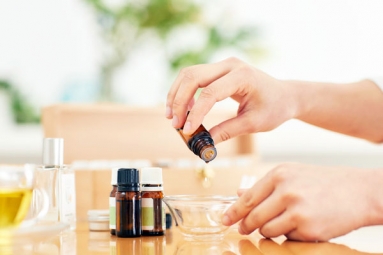
(Image source from: Canva.com)
Monsoon rains bring a rise in various infections due to increased moisture, stagnant water, and more disease-carrying insects like mosquitoes. Common monsoon illnesses include dengue, malaria, and typhoid. To safeguard your well-being, it's crucial to take preventive actions. Here are 7 tips to help you lower the risk of monsoon-related infections:
Bolster your body's defenses: A robust immune system is your primary shield against infections. During the monsoon, fluctuating weather can weaken the body's immune response, making you more vulnerable to viruses, bacteria, and other pathogens. Incorporate immunity-boosting foods like citrus fruits, garlic, ginger, turmeric, and leafy greens into your diet.
Prioritize personal cleanliness: Maintaining good hygiene habits, such as frequent handwashing and proper grooming, helps prevent the spread of germs and reduces the risk of illnesses like flu, cold, and gastrointestinal diseases. Wash your hands with soap and water regularly, especially before meals and after using the restroom. Keep your nails trimmed, bathe daily, and wear clean, dry clothes.
When soap and water are unavailable, rely on alcohol-based hand sanitizers for cleanliness. Contaminated water can cause serious illnesses like cholera, typhoid, and diarrhea during the monsoon season. Ensure safe drinking by boiling water or using a reliable purifier. Avoid drinking from unknown sources, and bring your own water when going out. Check that bottled water seals are intact. Street food, often prepared in unsanitary conditions, can harbor bacteria and viruses, leading to food poisoning and digestive problems. Prepare meals at home with fresh, clean ingredients. If eating out, choose reputable establishments with good hygiene practices, and opt for freshly cooked, hot food over cold or raw items. Mosquitoes thrive during the monsoon, carrying diseases like malaria, dengue, and chikungunya. Use mosquito repellent creams or sprays on exposed skin, and install nets and screens to keep mosquitoes at bay.
Maintain a mosquito-free environment at home. Dressing properly can safeguard you from health concerns like infections, insect attacks, and moisture-driven problems such as fungal issues. Opt for airy, lightweight, and breathable materials that dry quickly. Long-sleeved tops and trousers can shield you from mosquito bites. Promptly change out of damp clothes to prevent fungal infections.
Keep the environment clean. A clean environment reduces the risk of infection by inhibiting the growth and spread of harmful bacteria, viruses and pests. Clean your home regularly, especially wet areas such as the bathroom and kitchen. Dispose of waste properly and ensure that drains and gutters are free of blockages to avoid water clogging. Use disinfectants to clean surfaces and floors.







